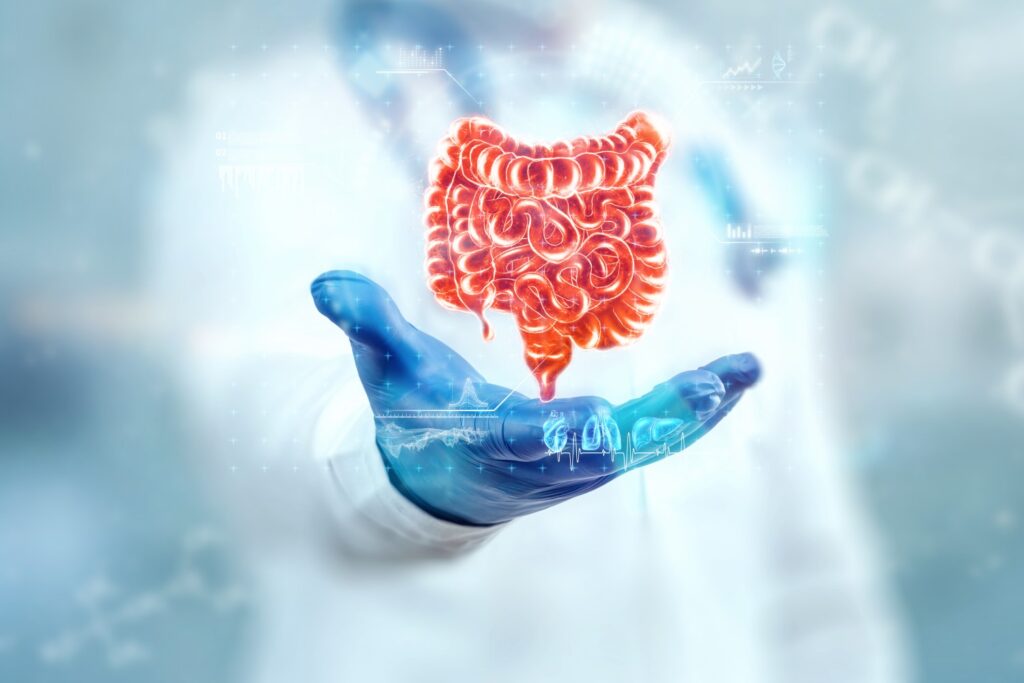The colon is the large intestine which is the final part of the digestive system.
Colectomy or Colon Resection is a surgery performed to treat colon diseases. These diseases include colon cancer, colon inflammatory disease (diverticulitis), intestinal obstruction, infection, bleeding, etc. During this surgical procedure, a part or whole of the colon is removed based on your condition.
Types of Colectomies
- Total colectomy: The entire colon is removed
- Partial colectomy: Only a part of the colon is removed
- Hemicolectomy: Either the right or left side of the colon is removed
- Total proctocolectomy: The colon along with rectum are removed
- Abdominal perineal resection: The sigmoid colon (part of the colon that attaches to the rectum), rectum, and anus are removed
- Segmental resection: A small part of the affected colon is removed
- Sigmoidectomy: The lowest part of the colon is removed
Laparoscopic colon surgery: It involves making several small incisions in the abdomen, through which a laparoscope and other surgical instruments are inserted to perform the surgery.
How Do You Prepare for a Colectomy?
Before undergoing colectomy, your doctor will:
- Evaluate your fitness for surgery
- Perform physical examination
- Checks the health history
The following tests are recommended
- Blood tests
- X-ray
- Electrocardiogram (EKG) test
- Urinalysis
- Colonoscopy
- Pre-operative counseling
You will have to:
- Fast before the procedure (no food or drinks)
- Take a laxative or enema to clear out your bowels(intestines)
Colon Surgery Procedure
In general, you can expect your doctor to:
- Administer the general anesthesia
- Make incisions in your abdomen (belly area)
- Carefully separate and remove the affected colon tissue
- Connect the functional or healthy intestinal ends using staples or sutures
- Close your abdominal incisions
What is the Recovery Time for Colon Surgery?
You must stay at least 3 to 6 days to recover in the hospital post-surgery. This depends on the type of surgery you have undergone.
During the hospital stay, you will be-
- Monitored for any signs of complications after the surgery
- Gradually removed from the pain medications
- Fed with a liquid diet or soft diet (liquid to semi-solid)
- Checked for your bowels to begin functioning again
Colon Surgery Recovery Care
- You should avoid lifting heavy weights, do not climb stairs.
- Avoid performing strenuous exercises until the doctor’s advice.
- Follow diet restrictions as recommended by your doctor. You may be asked to eat a low-residue (low fiber) diet after surgery.
- Drink 8 to 10 glasses of water every day.
- Do not strain to have a bowel movement (pooping).
- Resume back to work in 2-3 weeks.
Talk to your doctor about showering, putting your surgical incisions under water, diet, sexual activity, and stoma care.
Colon Surgery Risks
As with any surgery, there are potential risks and complications associated with colon surgery. Some of the most common risks include:
- Infection
- Bleeding
- Blood clots
- Damage to other organs
- Anesthesia complications
- Bowel obstruction
- Incontinence
Conclusion
While colon surgery carries potential risks and complications, it can also provide many benefits, including the removal of cancerous or diseased tissue, relief of symptoms, and prevention of future health problems.
If you are considering colon surgery, it is important to discuss the potential risks and benefits with your surgeon and to follow all postoperative instructions carefully to ensure a safe and successful recovery.

